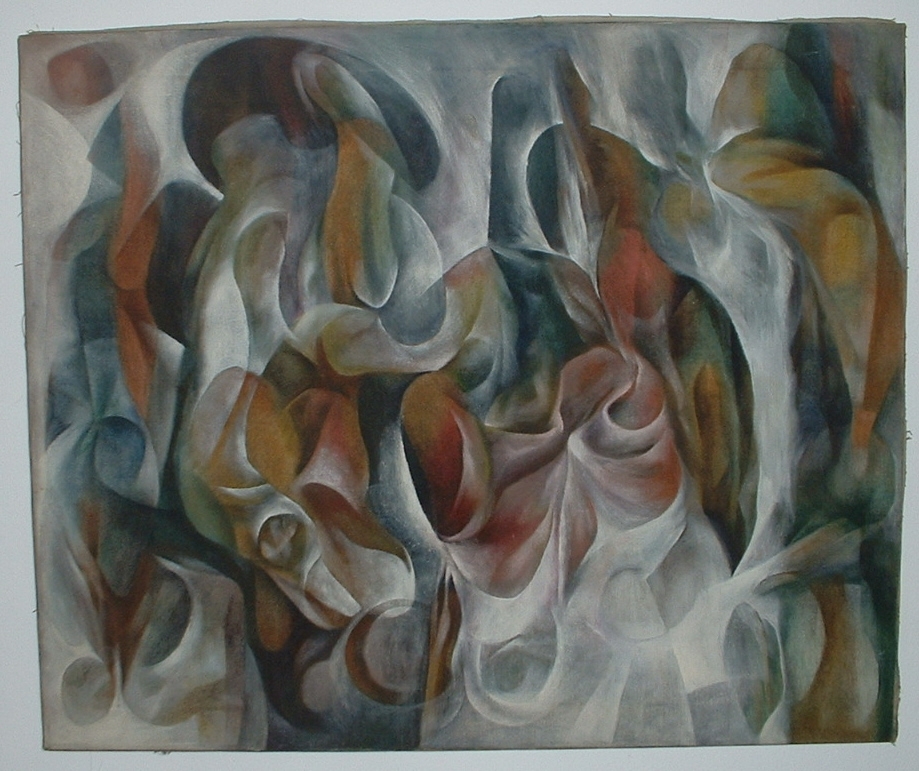Many friends have written to me after my post on advance directives, saying that they just can’t seem to get around to signing one — even though they recognize how important it is.
One friend shared with me the “Ethical Will” of her aunt, Vivian Shaw, who died comfortably on her own terms at 82. I was lucky enough to have known Viv over the years, and to have witnessed the care and thought she put into life and, ultimately, death.
As her ethical will demonstrates, the totality of our beings goes into these decisions — our spiritual beliefs, ethical values, temperament, family situation and financial considerations.
No wonder it can be so difficult.
With my friend’s permission, I wanted to share Viv’s articulate and long-considered rationale behind her own living will, in her own words…
This paper explains the choices I make in my living will and health care proxy.
Goals
At 4 score years, I do not want powerful medications or “hi-tech” procedures. They can be as risky to an 80 year old body as disease itself. We have a right to choose and control our own risks — especially if quality and not quantity of years is our focus.
I do not wish to survive a disease that would gradually destroy my mind and body; a disease or accident that would leave me unable to experience the pleasures of sight, sound and movement; unable to bathe, dress and feed myself; requiring intubation or the use of mechanical equipment for involuntary functions.
A life of such mental and physical impairment would have lost requisite quality for me. I do not fear death as much as I fear the indignity of deterioration, dependence and hopeless pain. I ask that drugs be administered to me for terminal suffering even if they hasten the moment of death.
Beliefs
I “believe” that we are in the universe as the cells in our bodies are in us. There is a time to be born and a time to die. All sentient beings contain within themselves the seeds of their own dissolution.
Life and death are not opposites. Birth and death are two “ends” of a transitory continuum. Death is built into the nature of biological life with the same care as birth.
We are here for a brief flash in the spectrum of time. Then, we merge again with the mystery of “Being.” Although we relinquish our separateness, we remain – in some way – a part of the mystery.
Values
The ethicist Ronald Dworkin has written, “The crucial question is not whether to respect the sanctity of life but which decision one believes best respects that sanctity.”
Compassionate end of life care implies empathy and respect. It reflects the Golden Rule — do not unto others as you would not have others do unto you. Compassionate care is not correct action; it is mindful action for this unique person in her unique situation. It is an I/Thou, not an I/It relationship.
Statistics refer to bodies. But persons are unique mind-body integers. Implementing treatment based on statistical data may help one person, yet seriously damage another.
Each of us in an Advance Directive has the right to state her will with regard to end of life care – whether her choice is refusal, withdrawal or heroic treatment. In a country that has historically avowed religious and philosophical freedom, I can find no justification for denying an individual choice and control in terminal care.
A bad death is fixed in the memory of survivors with guilt and grief. The most compassionate gift we can give to ourselves and others is serenity in the dying process. My friends and family understand and respect my values. Many share them.
The focus of the medical industrial complex on resisting death with powerful pharmaceuticals and heroic technological procedures is based on particular bio-ethical values — shared by some patients and not by others.
According to the Golden Rule, I deserve the same respect for my own values. Again, I quote from Ronald Dworkin, “A government which dictates that I live and die in accord with a bio-ethical value system in which I do not believe is a humiliating form of tyranny.”
Temperament
I respect the beliefs of others but there are many whose beliefs I do not share. I feel that extending biological existence for too long is like putting a dying flower into a splint. An untimely death is just as much one that comes too late as one that comes too soon.
Temperaments differ. Some of us are fighters who rage against the dying of the light. Those who do not fight are often demeaned as depressed or castigated as lacking character. It is hard for most to empathize with those whose fears and goals are different from their own.
Some find in their religion a reason to endure great pain. Some have families who will not let them go. Some are willing to endure any quality of life in order to resist death.
We are unique in our temperaments and life situations, and so in our beliefs, values and goals.
Family situation
End of life care is extremely challenging for a patient without immediate family at home or available for close supervising of hospital care. Because I have neither siblings, husband or children, such necessary attention would realistically be unavailable to me.
There is always risk in combating serious disease. When the patient has lived for 4 score years, that risk is magnified. For me, stress would be exacerbated to an iatrogenic level if my doctors ignored my carefully prepared living will through which I hope to maintain choice and control in end of life care: determined not to live in a chronic medical Orange Alert, constantly being watched for new physical catastrophe; not to live in a hospital or nursing home.
There is a natural shift in point of view as we move from youth to age. Some want plastic surgery forever. But many elderly patients are disturbed by some doctor’s aggressive will to “treat” at a time when they keenly intuit that “there is a time to be born and a time to die.”
Financial considerations
In conclusion — and of great practical importance — to coerce me to spend down my financial resources on expensive, unwanted end of life care would be to deny me the right to implement my beliefs, values and goals; to deny me the possibility of making a positive difference in the lives of my young survivors.
I wish to express my bio-ethical values in meaningful action — bequeathing the moral gift of a “good death” and the material gift of money which can add convenience and pleasure to their lives.
Such action would give purpose to my last days.






wow, what an amazing woman! I relate so much to everything she says. Just beautiful! Reading this I realized that the reason I’ve put off writing a living will is not really because I’m afraid of death. I am not, and there couldn’t be a more eloquent explanation than Vivian’s line “All sentient beings contain within themselves the seeds of their own dissolution.” In fact, that feeling of “remaining a part of the mystery” is so strong in me that it’s hard to believe anyone would think otherwise and try to prevent you from crossing over peacefully when your time has come.
Since I’ve been fortunate not having had to deal with the “health” institutions and industries much it is thus my own inexperience with western medical reality that has led me to this false trust that nobody in their “right mind” would possibly try to keep a withering plant alive. It’s just so weird, I bet if you asked people whether they would want to be kept alive artificially with feeding tubes you’d have close to 100% saying “no.” And yet, we have created a system that runs completely counter to our natural human instincts. So it almost feels unnatural to have to spell out something so sacredly obvious, but I’m realizing that in this reality we have created for ourselves we have to, and I will.
So I’ll look at the living will as a gift to be invited to formulate to myself and the world why I think I’m here, and perhaps the more of us engage in this process openly the more likely we’ll be able to shift our “system” toward a less fearful relationship with death.
Thanks so much to you, your friend, and Vivian for posting this. With all your permission, I’d love to repost parts of this on my own blog.
My aunt, Vivian Shaw, is not here to give her permission, but I know she would welcome the chance to continue to share her ideas on this subject. She died in 2006 at the age of 82, never having ventured into the world of the internet. She also never wrote for publication. She thought deeply though about this, and other, topics, and I would just ask that anyone who quotes her writing online give her credit for her words.
Thank you. I would also like to share Vivian’s Ethical Will as an example and will give full credit to her.
Sven,
I, too, am continually amazed and moved by Viv’s eloquence, which was really the result of years of contemplation. (Another reason why I’m a big believer in “Year to Live” classes and not putting things off until it’s too late. Just think of the personal wisdom we might gain!)
I do believe that she achieved the ultimate gift to herself & those close to her by having a “good death,” on her own terms, in her own time. (In her words: “The most compassionate gift we can give … is serenity in the dying process.”)
You picked out one of my favorite lines of hers: “All sentient beings contain within themselves the seeds of their own dissolution.” There are so many other gems, such as: “An untimely death is just as much one that comes too late as one that comes too soon.”
I also find it interesting that twice she quotes Ecclesiastes 3:2: “A time to be born, and a time to die.” Of all the words ever uttered about life and death, perhaps those are the most comforting of all.
And now I will have Pete Seeger in my head all day 😉
Great song to have in your head!
“An untimely death is just as much one that comes too late as one that comes too soon” is another goose bump-inducing line. It reminds me of a scene in the movie “Nowhere in Africa” when an old tribal woman goes to die under a tree and the Jewish/German immigrant woman keeps trying to “help” her or “rescue” her, completely missing the point and in the process totally disturbing the old woman’s sacred passage.
And Lisa, thanks for checking in, it’ll be an honor to carry forth Viv’s wisdom and I’ll be sure to credit any words of hers I may relay. I can’t help but think they will benefit others, and she seems to have been the kind of person who would have enjoyed that.
Here’s a NYT piece on the topic, given that April 16 is “Health Care Decisions Day”:
http://www.nytimes.com/2010/04/16/health/15chen.html?hpw
Also wanted to share this exercise in writing your own ethical will (or “legacy letter”)… http://www.wncwoman.com/2013/10/02/the-most-important-letter-we-will-ever-write/